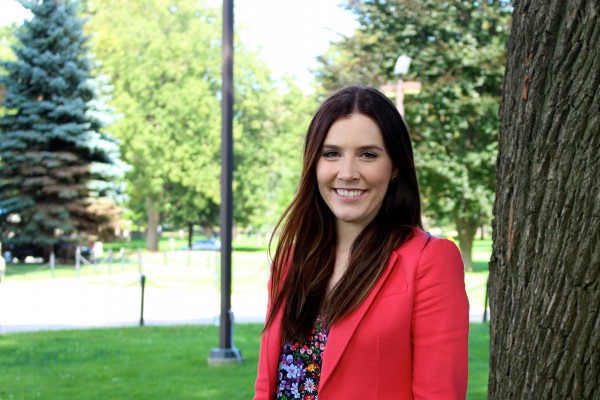 Neuropsychology Masters Candidate Molly Cairncross says mindfulness-based therapy's participants reported a significant reduction in core symptoms of ADHD
Neuropsychology Masters Candidate Molly Cairncross says mindfulness-based therapy's participants reported a significant reduction in core symptoms of ADHD
Some individuals diagnosed with Attention-Deficit/Hyperactivity Disorder (ADHD) report a decrease in symptoms after practicing mindfulness-based therapies, according to UWindsor Clinical Neuropsychology Masters Candidate Molly Cairncross.
“In mindfulness-based therapy, clients are directed to focus their attention on what’s occurring in the present moment,” says Cairncross. “As they become aware of wandering thoughts, they are encouraged to acknowledge those thoughts, as well as the feelings associated with the wandering mind, and to do so in a non-judgemental and open way, and then redirect attention back to their present experience.”
Using a statistical technique that allows researchers to combine the results of several studies to determine how effective an intervention or therapy may be, Cairncross compared eight separate studies where mindfulness was used as the main component in therapy sessions with individuals diagnosed with ADHD.
After, therapy participants reported a significant reduction in core symptoms of ADHD, which include inattention and hyperactivity/impulsivity.
Cairncross’ interest in mindfulness-based therapies was spurred by her research supervisor, Carlin Miller. Dr. Miller’s recent research focuses mainly on using mindfulness-based therapies to promote resiliency. Cairncross says she also practices mindfulness techniques in her own life and finds it exceptionally helpful to reduce stress and keep her focused on her present experience.
“These therapies are about learning the techniques and applying them to daily living,” she says.
“Whatever you are doing, whether you are driving or eating, it is about being mindful of the present moment and being conscious of when you begin think about the past or worry about what may happen in the future, and being able to acknowledge those thoughts and then re-focus on the present moment.”
Because mindfulness is designed for people to self-regulate attention, Cairncross says it can be particularly useful for those with ADHD who find it difficult to stay focused on such tasks as homework or listening to instructions.
Research shows that the most effective current treatment for ADHD is a combination of medication and psychotherapy, though Cairncross says investigating other therapies that may be helpful for individuals, who would prefer to avoid medication or who suffer side-effects.
Cairncross says the clinical application of mindfulness-based therapies has become much more popular in western society over the last several decades.
“With more research we can get a better understanding of how these therapies help improve functioning and increase quality of life for individuals with ADHD.”
This summer Cairncross defended her masters thesis, The Efficacy of Mindfulness-Based Therapies for Attention-Deficit/Hyperactivity Disorder: A Meta-analytic Review. She returns to UWindsor in the fall to begin a doctoral degree in Clinical Neuropsychology under faculty advisor Carlin Miller.

